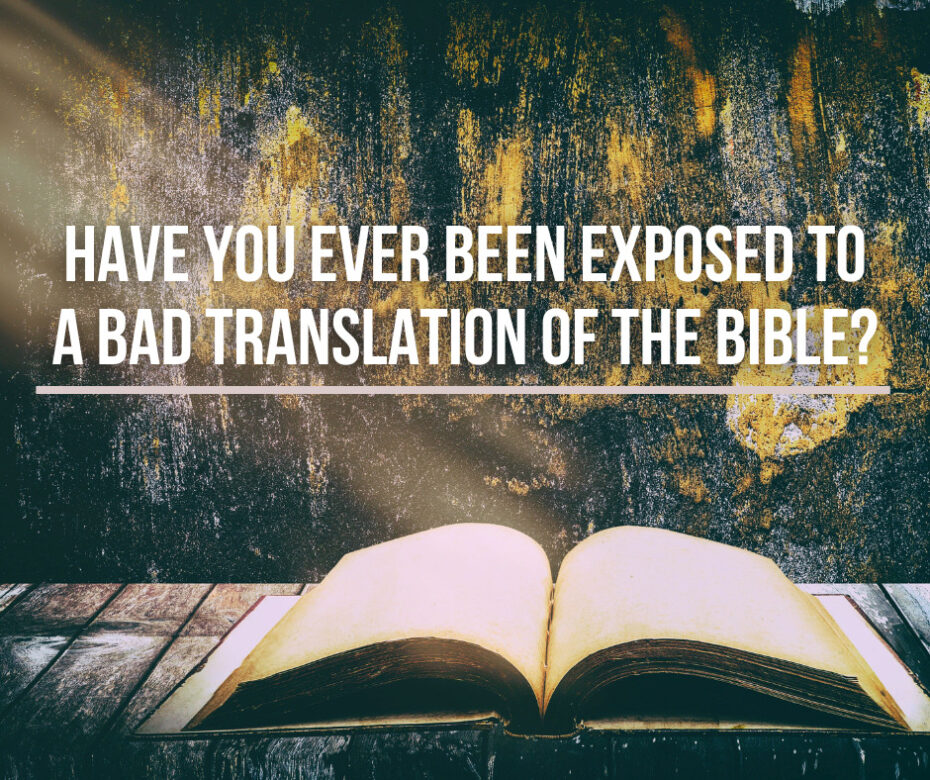We deal with translators all the time. Unless we use a Greek text when we read the NT, we use a translation. If you go to other countries, a translator is often needed when you speak. If you are teaching the Bible in such an environment, a translator is obviously extremely important. Sometimes I am in Bible studies that include people who speak other languages. Almost always, they use a Bible in their own language. It is interesting to compare how their language and English translate the same verse.
I am sure that most translators have good motives. They must often make decisions about which words to use. I believe that most of time they want to accurately interpret what they are hearing or reading. But the fact is that many times they don’t accurately express the original intent of the language from which they are translating.
Once I was preaching a sermon in Costa Rica. I know just enough Spanish to be dangerous. So, to ensure that the audience could understand all the nuances of what I was saying, I used a translator. When I presented the gospel, I obviously gave a Free Grace version. I quoted John 3:16 and said that if you believe in Jesus for eternal life, you have it. You cannot lose it. You don’t have to do anything else. It is completely free.
The translator, however, did not say what I said. He said that they needed to believe in Jesus, but added that if you believe, you will repent of your sins and see a change in your life. I liked that young man. I know that he thought he was explaining my words to the people who were listening. I am convinced that he thought I meant the same thing he was saying. He was simply “helping me out.” I am confident he believed he needed to add these words because I was not from that culture and he could better put into words, for people fluent in Spanish, what I was saying.
A friend does mission trips to Moldova. He also goes there to give the people a Free Grace gospel. He needs a translator. He experienced the same thing I did. He discovered that the translator was “helping him out” as well. Another person, fluent in the language, pointed out that the translator was not being accurate.
We sometimes run into this problem when we read different versions of the Bible. Sometimes words are left out. Other times, words are added. In many instances, the translator has to make a decision about how to translate a word that has more than one meaning. In such cases, culture or one’s own theology can determine which meaning is used. Just this week, somebody showed me a Bible version that leaves out some of our Lord’s words to the seven churches in Revelation 2–3. In Mark 8:34-38, most English translations use English words inappropriately because of the translators’ theological biases and traditions.
Translators have a difficult job. They have to make tough decisions. It is impossible that their theology will not impact how they translate. Even when they want to do a good job, and even when they want to accurately communicate what God has said, sometimes they do neither.
I’m a pessimist when it comes to this subject. We will never be able to completely solve this problem. If that is true, what can we do?
I think the answer is that we need to be aware of the problem. If we run into a verse that doesn’t make sense, it may be a translation issue. The same is true if we hear a translation that contradicts the clear teaching of Scripture. If an oral translator says that eternal salvation is the result of good works, he is obviously wrong. Perhaps he is mistakenly trying to “help the speaker out.” If we are reading a Bible translation that says such things, it is clear that the translator has done a poor job, however pure his motives may have been.
We will never be able to fix all these problems. If we are aware of them, we can straighten things out when they come to our attention.


